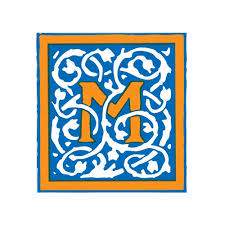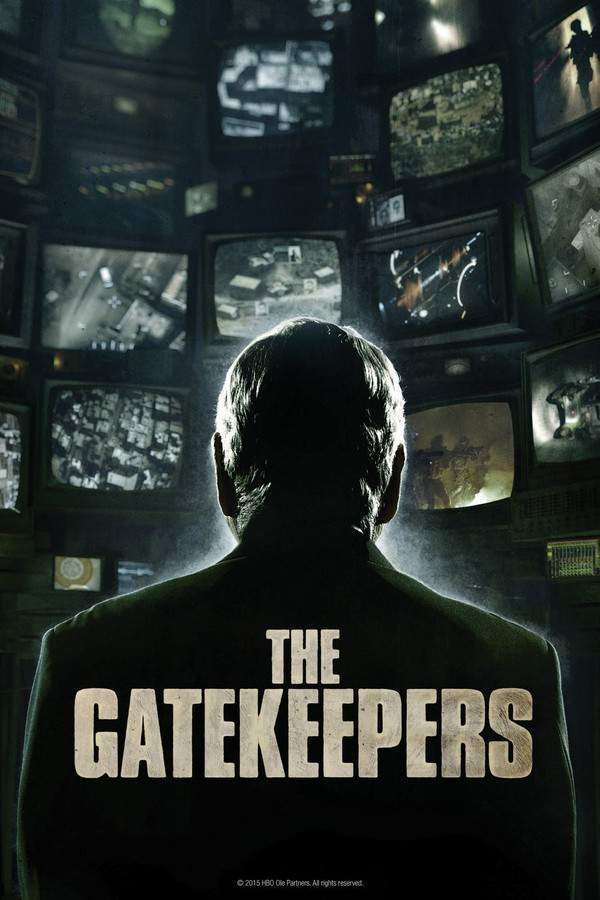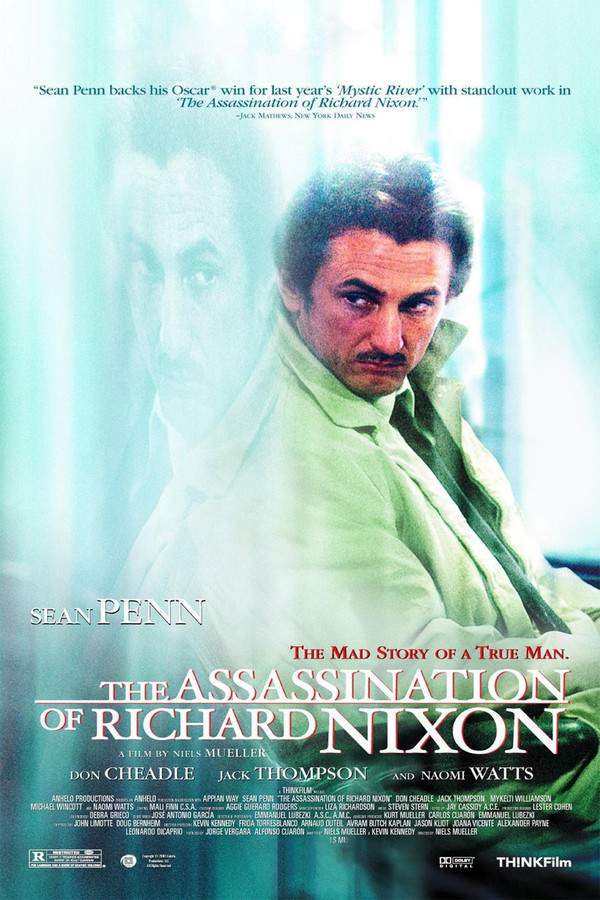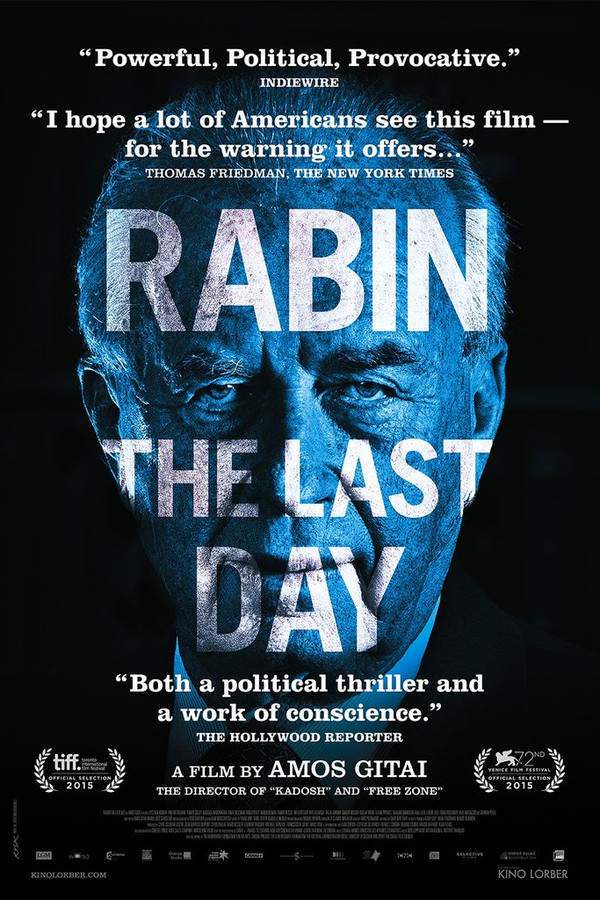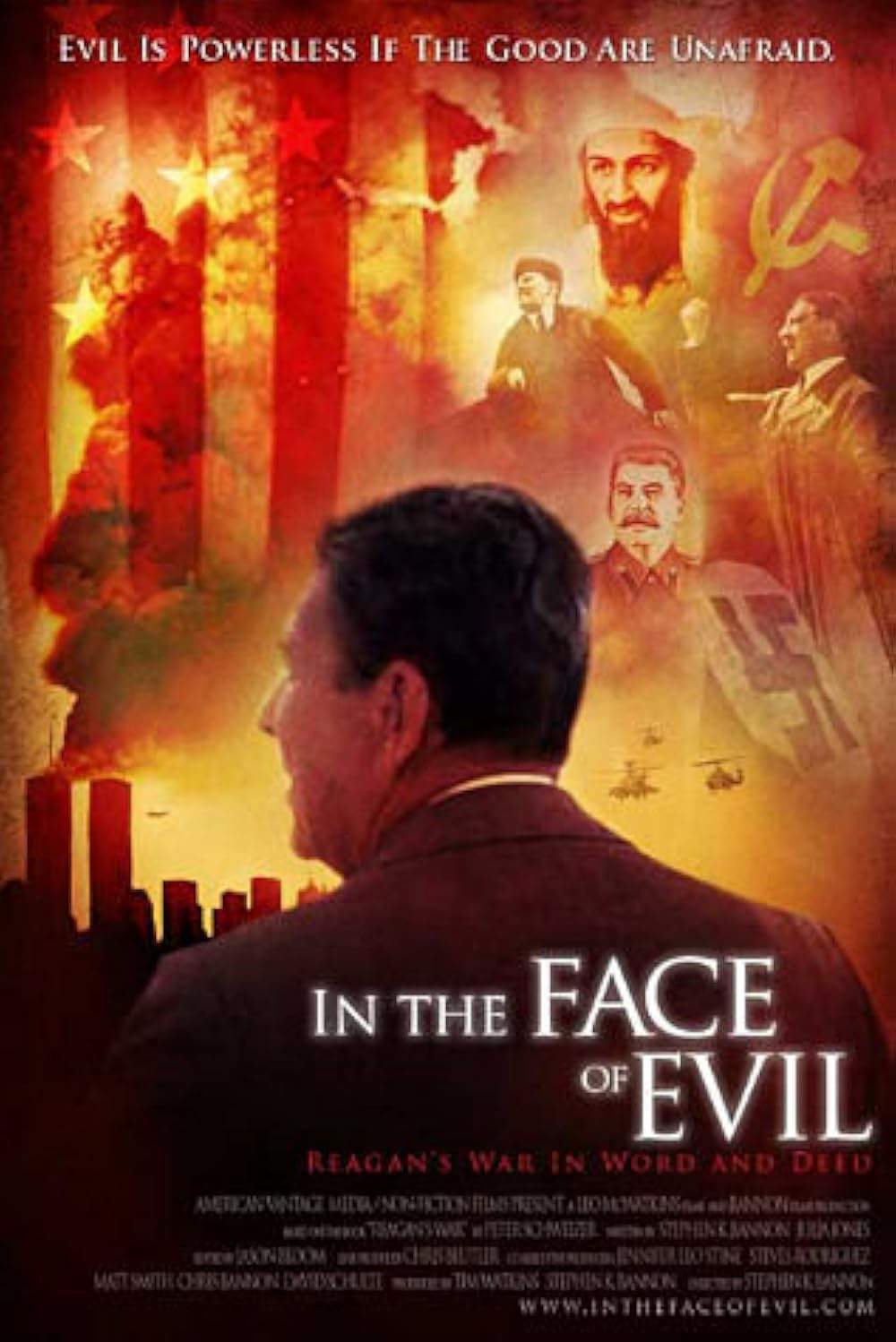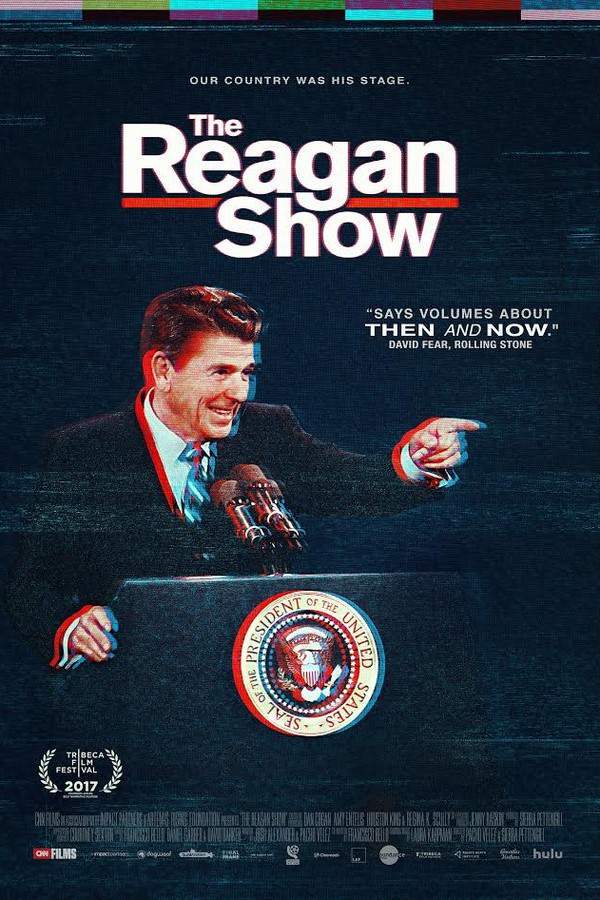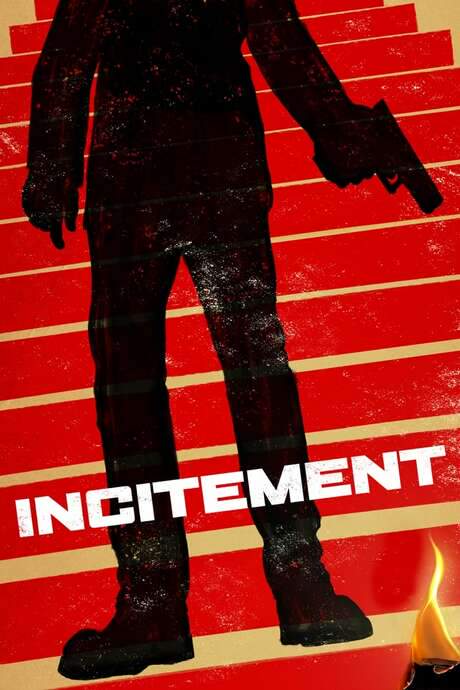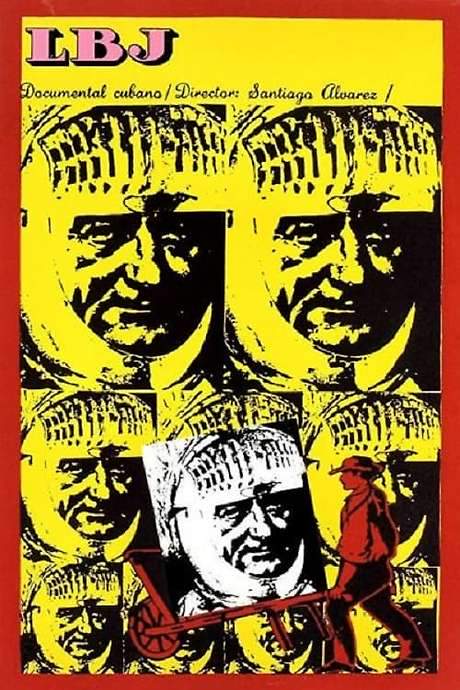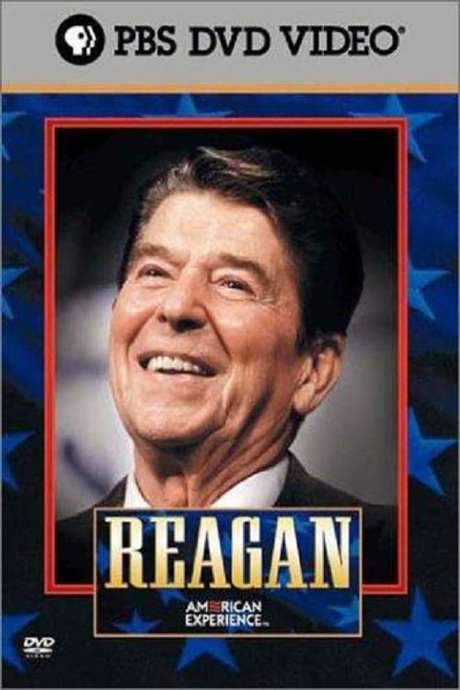Rabin in His Own Words 2016

This documentary explores the life and legacy of Israeli leader Yitzhak Rabin, primarily through his own words and personal materials. Archival footage, home movies, and private letters reveal his journey from a labor leader’s son to a farmer, soldier, and ultimately, Prime Minister. The film chronicles his significant achievements and challenges, including his role in the peace process, and culminates in the events surrounding his assassination.
Does Rabin in His Own Words have end credit scenes?
No!
Rabin in His Own Words does not have end credit scenes. You can leave when the credits roll.
Meet the Full Cast and Actors of Rabin in His Own Words
Explore the complete cast of Rabin in His Own Words, including both lead and supporting actors. Learn who plays each character, discover their past roles and achievements, and find out what makes this ensemble cast stand out in the world of film and television.
No actors found
External Links and Streaming Options
Discover where to watch Rabin in His Own Words online, including streaming platforms, rental options, and official sources. Compare reviews, ratings, and in-depth movie information across sites like IMDb, TMDb, Rotten Tomatoes or Metacritic.
Ratings and Reviews for Rabin in His Own Words
See how Rabin in His Own Words is rated across major platforms like IMDb, Metacritic, and TMDb. Compare audience scores and critic reviews to understand where Rabin in His Own Words stands among top-rated movies in its genre.

69
Metascore
tbd
User Score


100%
TOMATOMETER

0%
User Score

7.4 /10
IMDb Rating
Take the Ultimate Rabin in His Own Words Movie Quiz
Challenge your knowledge of Rabin in His Own Words with this fun and interactive movie quiz. Test yourself on key plot points, iconic characters, hidden details, and memorable moments to see how well you really know the film.
Rabin in His Own Words Quiz: Test your knowledge on the intricate details and events surrounding Richard Nixon's presidency as portrayed in 'Rabin in His Own Words'.
What significant event took place on August 9, 1974?
Richard Nixon's resignation
The start of the Watergate hearings
The signing of the Vietnam War Treaty
The release of the Pentagon Papers
Show hint
Full Plot Summary and Ending Explained for Rabin in His Own Words
Read the complete plot summary of Rabin in His Own Words, including all major events, twists, and the full ending explained in detail. Explore key characters, themes, hidden meanings, and everything you need to understand the story from beginning to end.
On August 9, 1974, Richard Milhous Nixon became the first President of the United States to resign from office. His presidency, which reigned from 1971 to 1973, was marred by the secret recording of his conversations, initially intended to preserve a historical record. However, following the explosive Watergate scandal, the disclosure of these tapes ultimately led to his political demise.
Fearing the impact of his raw and unfiltered commentary on the tapes, Nixon aimed to keep their contents hidden for the duration of his life post-presidency. Yet, following his death in 1994, the government initiated the release of the 3,700 hours of recordings, with the final installments made public on August 20, 2013.
In 1982, John Ehrlichman, Nixon’s former chief domestic advisor, expressed apprehensions about the tapes’ implications. He remarked, > “The problem is that historians are going to grab an hour of tape… and if you listen to a snippet of tape, you’re going to form an impression of this man that’s going to be wrong.” He envisioned that a future group of historians would evaluate the entirety of the tapes and archives, ultimately revealing Nixon as “the strangest paradoxical combination of any man I ever heard of.”
Only a select few, including Chief of Staff H.R. Bob Haldeman, Deputy Assistant Alexander Butterfield, and Special Assistant Stephen Bull, were aware of the recordings. Notably, others—such as John Ehrlichman, National Security Advisor Henry Kissinger, and Attorney General John Mitchell—were kept in the dark. Nixon himself reflected in 1983 on the tapes being “voice activated, everything was taped which was probably stupid.”
The declassified content of these recordings disclosed Nixon’s perspectives on various critical issues, including the Vietnam War, the Pentagon Papers leak, and his Supreme Court nominations. In private discussions with Henry Kissinger, Nixon voiced frustration at anti-war demonstrators, stating, > “It really burns me up. We have no pride do we anymore, Henry?” He also expressed contempt for Vietnam veteran [John Kerry], denoting him as “quite a phony.” Despite the growing anti-war sentiment around him, Nixon was adamant that “that was not the voice of America. The voice of America was the silent majority.”
His bitter response to the New York Times’ publication of classified Pentagon documents underscored his increasing animosity towards the media. He declared to Henry Kissinger, > “This is treasonable action on the part of the bastards that put it out.” This hostility extended to Daniel Ellsberg, the culprit behind the Times publication, whom Nixon targeted with anti-Semitic remarks, suggesting that “the Jews are born spies.”
As pressure mounted for him to nominate a female Supreme Court Justice, Nixon publicly put forth candidates such as Mildred Lillie and Sylvia Bacon, but confided to John Mitchell his wish to veer away from that “woman kick.” He would later consider his Supreme Court nominations as one of the significant domestic successes of his presidency. Internationally, he marked his groundbreaking trip to China in 1972 and his arms negotiation efforts in Moscow as major policy victories.
Nixon’s disdain for the media was palpable as he reiterated to Henry Kissinger that > “The press is the enemy,” insisting on the necessity to undermine their credibility. He encouraged [Charles Colson], his Special Counsel, to “keep up the attack on the media,” displaying a raw contempt that became evident both in public interviews and private discussions.
When the Watergate break-in occurred, Nixon contemplated with Bob Haldeman the possibility of providing financial support to the arrested individuals, noting, > “Well, they took a hell of a risk. And they have to be paid.” He downplayed the event’s significance, sharing with speechwriter Pat Buchanan his belief that “the Watergate thing… is going to pass. That’ll be over.”
Despite winning a landslide re-election and proclaiming what he called “peace with honor” in Vietnam, the Watergate issue persisted. During Senate hearings on July 16, 1973, the existence of secret recording devices in his office came to light, culminating in his resignation as impeachment loomed on the horizon.
Uncover the Details: Timeline, Characters, Themes, and Beyond!

Coming soon on iOS and Android
The Plot Explained Mobile App
From blockbusters to hidden gems — dive into movie stories anytime, anywhere. Save your favorites, discover plots faster, and never miss a twist again.
Sign up to be the first to know when we launch. Your email stays private — always.
Discover Film Music Concerts Near You – Live Orchestras Performing Iconic Movie Soundtracks
Immerse yourself in the magic of cinema with live orchestral performances of your favorite film scores. From sweeping Hollywood blockbusters and animated classics to epic fantasy soundtracks, our curated listings connect you to upcoming film music events worldwide.
Explore concert film screenings paired with full orchestra concerts, read detailed event information, and secure your tickets for unforgettable evenings celebrating legendary composers like John Williams, Hans Zimmer, and more.


Rabin in His Own Words Themes and Keywords
Discover the central themes, ideas, and keywords that define the movie’s story, tone, and message. Analyze the film’s deeper meanings, genre influences, and recurring concepts.

Unlock the World of Movies with Our Comprehensive Wiki
Dive into our Movie Wiki for in-depth film encyclopedia entries, including cast biographies, production trivia, plot synopses, behind-the-scenes facts, and thematic analyses. Whether you’re researching iconic directors, exploring genre histories, or discovering hidden easter eggs, our expertly curated movie database has everything you need to fuel your cinematic passion.

Similar Movies To Rabin in His Own Words You Should Know About
Browse a curated list of movies similar in genre, tone, characters, or story structure. Discover new titles like the one you're watching, perfect for fans of related plots, vibes, or cinematic styles.
Quick Links: Summary, Cast, Ratings, More

What's After the Movie?
Not sure whether to stay after the credits? Find out!
Explore Our Movie Platform
New Movie Releases (2026)
Famous Movie Actors
Top Film Production Studios
Movie Plot Summaries & Endings
Major Movie Awards & Winners
Best Concert Films & Music Documentaries
Movie Collections and Curated Lists
© 2026 What's After the Movie. All rights reserved.


